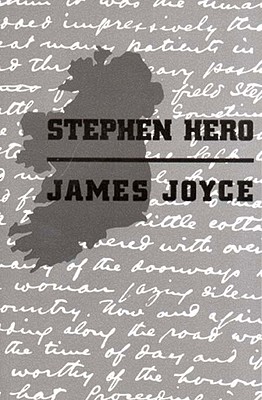APS TOGETHER
Day 11
Stephen Hero by James JoyceXXV, pp. 200-218
January 22, 2022 by Belinda McKeon
It’s not so much that Stephen regrets his conduct towards Emma, but that he is cast into doubt whenever he thinks about it, and he does not like being cast into doubt. Has he behaved like a lunatic? Well, no, no, says his friend Lynch, but he has certainly gone about things “strangely.” Would there have been something less lunatic about proposing marriage, Stephen demands to know? Hardly anything sane about the promises that the Solemnization of Marriage obliges a man to make, he says. Joyce himself, by the way, did not much believe in marriage. Already when he was writing Stephen Hero, he had met and was living with Nora Barnacle, but it would be 1931 before they were formally wed, and only then to ensure inheritance for their children.
In fact it’s not just a distaste for the perceived dishonesty of the marriage vow (‘For my part I do not believe that there was ever a moment of passion so fierce and energetic that it warranted a man in saying “I could love you for ever” to the adored object’) which repulses Stephen; the transactional element of the arrangement seems, to him, to amount to simony, or the trafficking of that which should be sacred. Don’t be under any illusion that the name of Stephen’s father, Simon Daedalus, is a coincidence in this context; Joyce was very interested in the idea and the moral failing of simony, considering spiritual objects to be above (to borrow from another writer of the era) “the greasy till.” He clearly didn’t have any predictive powers when it came to the electric power industry, though—see Stephen’s outburst, ‘Can the State buy and sell electricity? It is not possible.’ (Or perhaps he was just an early believer in privatization?)
From 203 to 206, we see Stephen admit—more than admit, extol—the attractions of the Catholic church. On an intellectual level, he just can’t quit it, even if its rules and the liberties taken by its officers disgust him. An embassy of imaginary “ambassadors” whisper the advantages of the Church into his ears, try as he might to dismiss them. Meanwhile, his father, enraged by his mediocre university exam results, relishes the opportunity to roar threats and insults at him—and his mother’s confessor priest, having heard of Stephen’s irreligious nature, has gone so far as to warn her to make sure he is not in the same house as any younger children (in the Daedalus family, which was much smaller than the Joyce scatter of children, only Maurice is younger, Isabel having been buried earlier that year.) Safer perhaps to be in the billard room of the Adelphi Hotel off Grafton Street, surrounded by hot-faced young men in fashionably cuffed trousers and shirt-sleeves, billiard balls hopping onto the floor every minute or so, watched over by a stout barmaid in “badly-made stays.” A stay is a bodice; Stephen’s attention to detail is, as ever, meticulous—and misanthropic.
